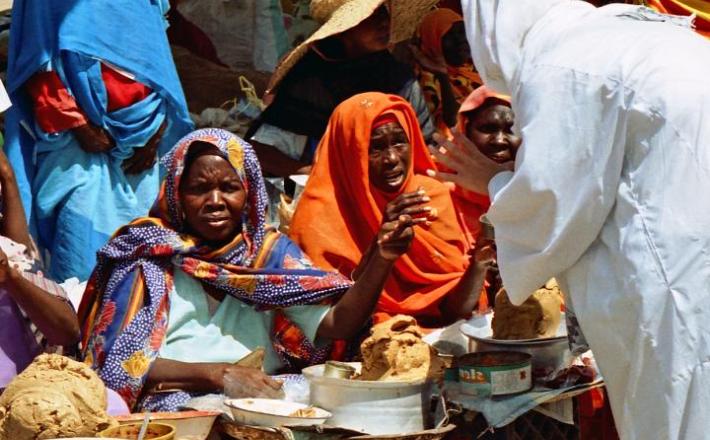Sudanese women trapped between conflict and political marginalization in peace negotiations
Source: Washington Institute
In the ongoing war in Sudan, there is an insufficiently narrated tragedy—the plight of women who are paying a hefty price for this war and are simultaneously being kept from the table in the discussion of how this war can end. International Women's Month coincides with a difficult period in Sudan, where women are facing various forms of violence and violations, including rape, sexual assault, kidnapping and the loss of providers. This is all occurring in a context marked by extreme poverty and lack of medical facilities, especially those related to sexual and reproductive health.
The war that erupted on April 15, 2023 between the Sudanese army and Rapid Support Forces has led to a humanitarian crisis that UN reports have ranked among the largest globally—stating that nearly 8 million people have been displaced due to the war, 88 percent of whom are women and children. There are more than 4 million women and girls at risk of sexual assaults, and alarming reports have appeared of women being sold in markets in Sudan.
The painful irony is that Sudanese women were at the forefront of the Sudanese revolution that overthrew Omar al-Bashir's government on April 11, 2019. Despite their contributions and sacrifices, they found themselves marginalized and excluded from decision-making positions in the subsequent transitional government. The promises of allocating 40 percent of the Sudanese parliament’s seats for women remained unfulfilled. When the actual figures emerged, they reflected a failure to meet Sudanese women's aspirations and acknowledge their vital role in society and the political process.
Read here the full article published by the Washington Institute on 25 March 2024.
Image source: Washington Institute

In the ongoing war in Sudan, there is an insufficiently narrated tragedy—the plight of women who are paying a hefty price for this war and are simultaneously being kept from the table in the discussion of how this war can end. International Women's Month coincides with a difficult period in Sudan, where women are facing various forms of violence and violations, including rape, sexual assault, kidnapping and the loss of providers. This is all occurring in a context marked by extreme poverty and lack of medical facilities, especially those related to sexual and reproductive health.
The war that erupted on April 15, 2023 between the Sudanese army and Rapid Support Forces has led to a humanitarian crisis that UN reports have ranked among the largest globally—stating that nearly 8 million people have been displaced due to the war, 88 percent of whom are women and children. There are more than 4 million women and girls at risk of sexual assaults, and alarming reports have appeared of women being sold in markets in Sudan.
The painful irony is that Sudanese women were at the forefront of the Sudanese revolution that overthrew Omar al-Bashir's government on April 11, 2019. Despite their contributions and sacrifices, they found themselves marginalized and excluded from decision-making positions in the subsequent transitional government. The promises of allocating 40 percent of the Sudanese parliament’s seats for women remained unfulfilled. When the actual figures emerged, they reflected a failure to meet Sudanese women's aspirations and acknowledge their vital role in society and the political process.
Read here the full article published by the Washington Institute on 25 March 2024.
Image source: Washington Institute